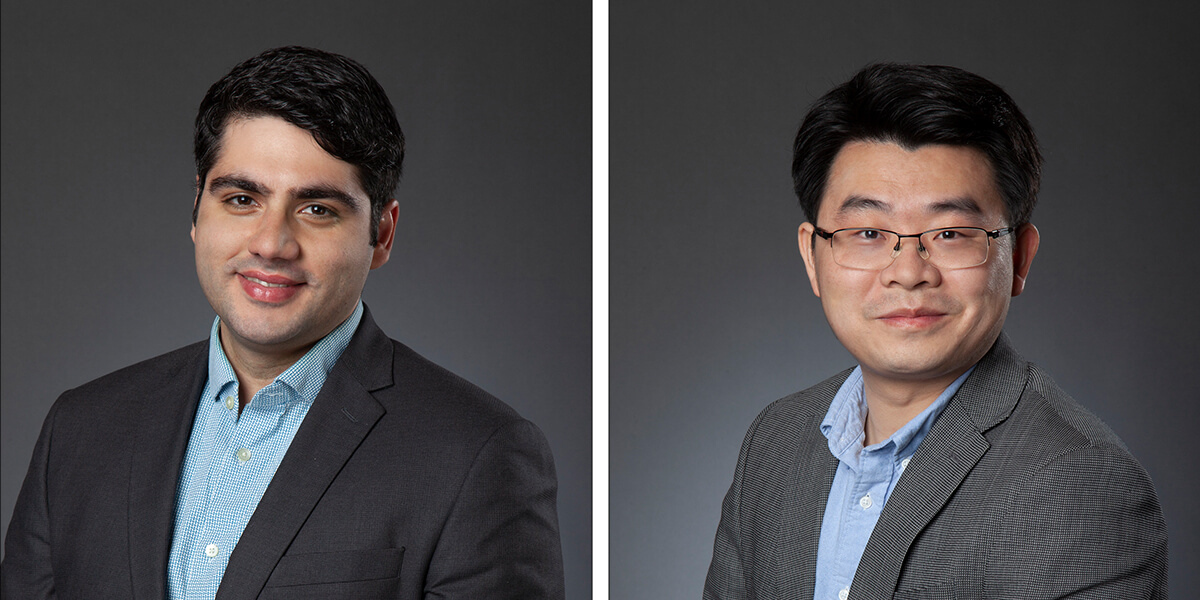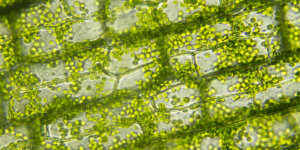Faculty from the USC Viterbi School of Engineering were among 38 recipients of the 2021 Office of Naval Research Young Investigator Awards. Rehan Kapadia, assistant professor of electrical and computer engineering, and Qiming Wang, assistant professor of civil and environmental engineering received three-year support for projects focused on novel communication applications and engineering living materials respectively.

Rehan Kapadia and Qiming Wang.
Rehan Kapadia
Rehan Kapadia, assistant professor of electrical and computer engineering, focuses his research at the intersection of material science and electrical engineering. Much of his work is in designing next-generation electronic and photonic devices and developing new techniques to better fabricate them.
Kapadia’s ONR YIP, “Direct Generation of Electromagnetic Radiation with a Compact, Air-Stable, Optically Modulated Electron Emitter,” builds on his previous work in developing optically modulated electron sources for communication applications. For this specific project, Kapadia seeks to convert information carried by photons in a laser beam into information carried by an electron beam, thereby greatly increasing the power of communication signals. This represents a combination of engineering fields that don’t usually intersect – optical telecommunications and vacuum electron devices. With the support from ONR, Kapadia plans to develop a novel high-powered electron beam device, experimentally demonstrate its behavior, and theoretically understand the limits of its capacity.
Qiming Wang
Bioinspired manufacturing and mechanics of unprecedented materials is a central focus of Stephen Schrank Early Career Chair in Civil and Environmental Engineering Qiming Wang’s research. It is also a growing area with potential to overcome engineering challenges with regard to the environment, infrastructure, robotics and healthcare. Working with everything from “smart materials,” which can repair themselves following fracture to living materials, Wang’s goal is to use innovation to transcend limitations of existing materials, while also creating mechanisms for sustainability and longevity.
Wang’s ONR YIP, “Harnessing Microorganisms to Synthesize Bionic Composites with Ordered Microstructures,” builds upon his work with engineering living materials. In nature, biological systems prove to be responsive to their environment, self-healing, and incredibly resilient. Taking inspiration from these systems, Wang seeks to create materials that utilize living organisms, like bacteria, to create structures that offer exceptional mechanical properties such as ultrahigh strength, fracture toughness and energy dissipation capability. Wang said the goal is to create a new paradigm of harnessing living microorganisms as a synthesis factory to grow high-performance hybrid synthetic-living composite materials that may find broad applications in defense structures for crack resistance, energy dissipation, and impact/shock/blast mitigation.
The project was awarded $510K for three years.
The ONR YIP is a highly competitive and popular early-career award program in which prior academic achievement and potential for significant scientific breakthrough are key elements of the evaluation criteria.
Established in 1985, the ONR YIP is one of the nation’s oldest and most selective basic-research, early-career awards in science and technology. Its purpose is to fund tenure-track academic researchers, or equivalent, whose scientific pursuits show outstanding promise for supporting the Department of Defense, while also promoting their professional development.
Published on June 4th, 2021
Last updated on July 20th, 2021










